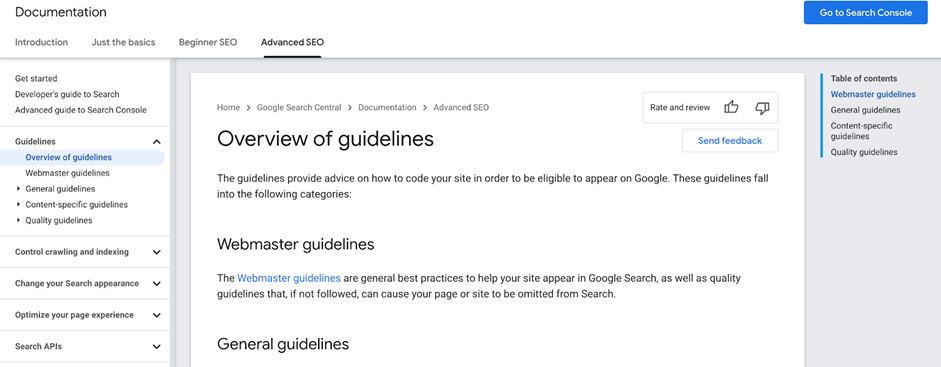Search engine optimization is a long-term process that requires attention and time. You can see the first SEO results only in a couple of months. Therefore, a detailed SEO strategy is really important so that whatever you do has a real effect on your marketing performance and eventually increases your productivity as a specialist.
In this article, we'll take a closer look at 7 main SEO steps to make your site more productive.
1. Analysis of your site, niche, and market leaders
This stage is crucial for any project, from online stores to magazines. First of all, an SEO specialist conducts in-depth analytics of your project and competitors. For this, various services are used that greatly simplify analytics – for example, SE Ranking. Here's what to analyze first:
- overall site visibility not only for high-frequency queries but also for medium- and low-frequency ones;
- competitors and market leaders, in order to understand what to focus on in this niche, what features on competitors' sites are effective;
- the structure of top sites in your niche, their backlink profile;
- requests for which you need to create and optimize landing pages.
- content indexation status with a tool like IndexCheckr, in order to see if any content is not indexed by Google and should be improved.

At this stage, you will understand if any global changes are required on the site and make them.
2. Strategy formulation
It is impossible to make all the changes to the site in one month, write a million articles, and add thousands of new categories. You should have a clear plan of action for each month, from simple to complex. Add all tasks to your preferred task manager and divide them into stages. This way you can track your progress and stay more productive.
In addition, it is better to re-analyze your site every week to check your positions, traffic, and find weaknesses. Click here to learn more actionable SEO strategies.
3. Formation of the core of search queries
Now you have a strategy, plan of action and preliminary analysis of your site and the sites of market leaders. After that, white label SEO specialists collect all relevant search queries using services such as Ahrefs, SEMrush, SE Ranking, etc. and check their frequency. Then they cluster and break them into groups. Further, these keywords will be used for:
- formation of the site structure;
- writing meta tags (title, meta description, keywords), H1, H2 headers;
- writing texts for landing pages;
- adding links;
- external website optimization.
Compiling the core of search queries is a huge task and can be time-consuming. Therefore, this process is divided into sections and categories, and when the keywords for a specific page are ready, you can then send an assignment to your copywriter.

Many marketers have special content creation tracking boards in their task managers for better productivity. You can add all members of your team to that board and move cards from stage to stage. This will keep all team members up to date on the progress.
4. Internal optimization
SEO is required not only for writing articles with keywords, although it also increases traffic. It's also worth doing the technical SEO optimization. It includes:
- creation of titles, descriptions, and H1 headers for categories, products, filters, pages, etc;
- making proper page addresses on your site;
- filter optimization – create rules for generating URLs;
- increasing the speed of the server response, loading of site pages;
- removing duplicates with permanent redirects, setting up canonical addresses, noindex and nofollow;
- creation of an XML sitemap;
- multi-language settings;
- optimization of pagination;
- optimization of server response code and page headers;
- setting up micro-markup for reviews, product card pages;
- setting up a monthly page speed review using some of the online website performance testing tools.
All this increases your search positions and makes your site more user-friendly and improves search visibility at the same time. This, in turn, is reflected in marketing performance. You get more customers, people love your site and come back to it again.
Though these SEO steps may seem overwhelming, you can achieve better results if you divide all stages into small tasks. You can also use the Pomodoro technique to stay concentrated throughout the day when working with dozens of tabs and SEO tech peculiarities.
5. External website optimization
Now there are practically no niches left where it would be possible to do without this stage, and link building is one way to enhance external website optimization. The more high-quality thematic sites that are linked to you, the more persuasive you become in the eyes of search engines. Plus, in this way, you also increase your audience.
The task of the SEO specialist is to utilize online tools for SEO to identify and choose suitable sites, negotiate and agree with them on placement opportunities, assign a task to a copywriter for content creation, and ultimately submit a ready and verified text for publication. The SEO expert should also track how your site's link profile changes, update links on time, and so on.
6. Writing articles and other types of copy
Text is still the foundation of search, according to Hubspot. Thus, if you really want to achieve impressive results, content optimization should be an ongoing process. A few articles a month will not bring you where you want to be. You should develop a content plan and follow it.
The SEO expert is constantly on the lookout for new topics for articles and guides. You also need to write and update the copy on your landing pages, in the product cards, etc. The articles are written by a copywriter, but the SEO specialist draws up technical assignments, selects keywords, determines the structure of the articles, and approves the finished work.
High-quality content not only takes your site higher in search results but also directly affects marketing results. The articles on your blog should be helpful and fully cover the topic. Links in your blog and on product pages will keep the users on your site longer and help them find what they came for.
In the realm of SaaS, for instance, recognizing the unique pain points of solution-aware audiences and delivering targeted and high-quality content, supported by efficient SEO for SaaS, is a strategic necessity. This approach paves the way for informed decision-making and addresses potential customers' specific needs and, at the same time it lowers bounce rates and increases conversions.
7. Constant page optimization
SEO is not a one-time task but an ongoing process. If you don't keep working on your site even after you hit the top of Google, your rank will quickly fall. Remember, just like you work on your site, so do your competitors work on theirs.
Regular audits and SERP monitoring can help you with that, as they will reveal the weaknesses of your site. SEO experts constantly work with the structure of the site, change it, increase the volume of existing articles, add keywords and links, etc. This is an ongoing process. Moreover, search engines are constantly updating their algorithms. You need to adapt to them and change your website promotion strategy based on these innovations. You can always refer to Google Search Central and its documentation, guidelines, and case studies to be aware of all innovations.

All this SEO stuff may be a bit confusing but if you use a productivity tool like RoundPie and keep track of your daily SEO tasks, it will be much easier to achieve results.
Summary
SEO is at the very core of your sales funnel and allows you to drive traffic to your website through optimized landing pages and blog articles. At the same time, SEO is not necessarily expensive – many tasks (such as collecting keywords, for example) today can be automated thanks to various services.
If you constantly work on your website, your traffic will grow, which means that the flow of potential customers will increase. The next step is to work on the UX and set up the CTAs to lead customers to the desired action.
About the author:
Eliza Medley is an experienced writer and psychologist. She is actively interested in management, new technologies, and writing motivational articles. And also trying to go with time with modern trends. Inspires people with her work to learn new things and reach new heights. Follow @Eliza_Medley on Twitter.
What would you like to know and what would be the best way to share this information to you? What is the best tips & tricks, what workaround do you use? We'd really appreciate your insight on these ones to make our integrations better, more productive and much more efficient. Comments, tweets are always welcome.